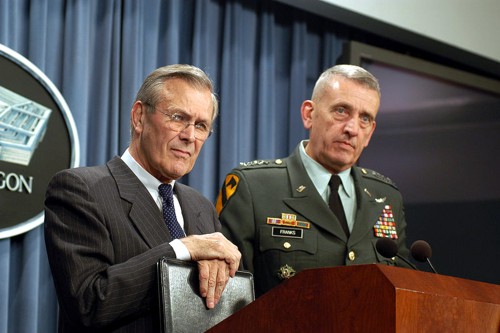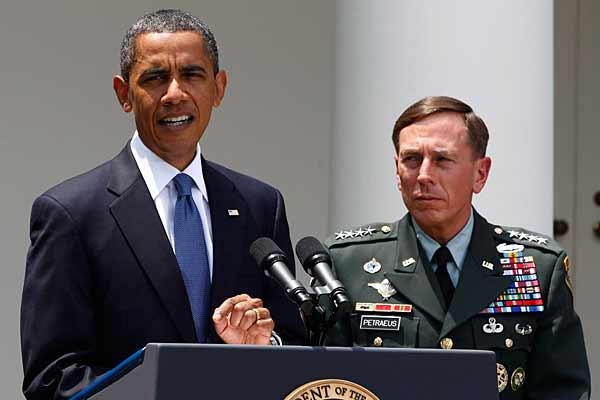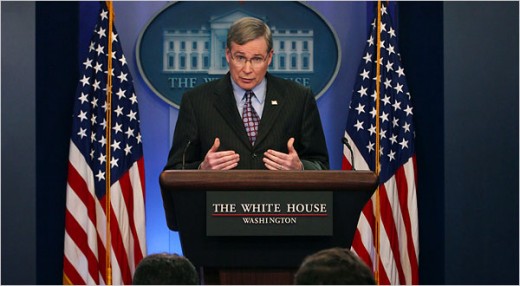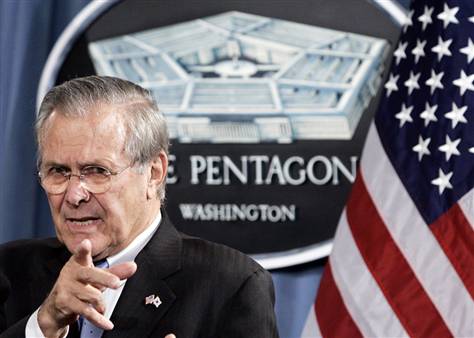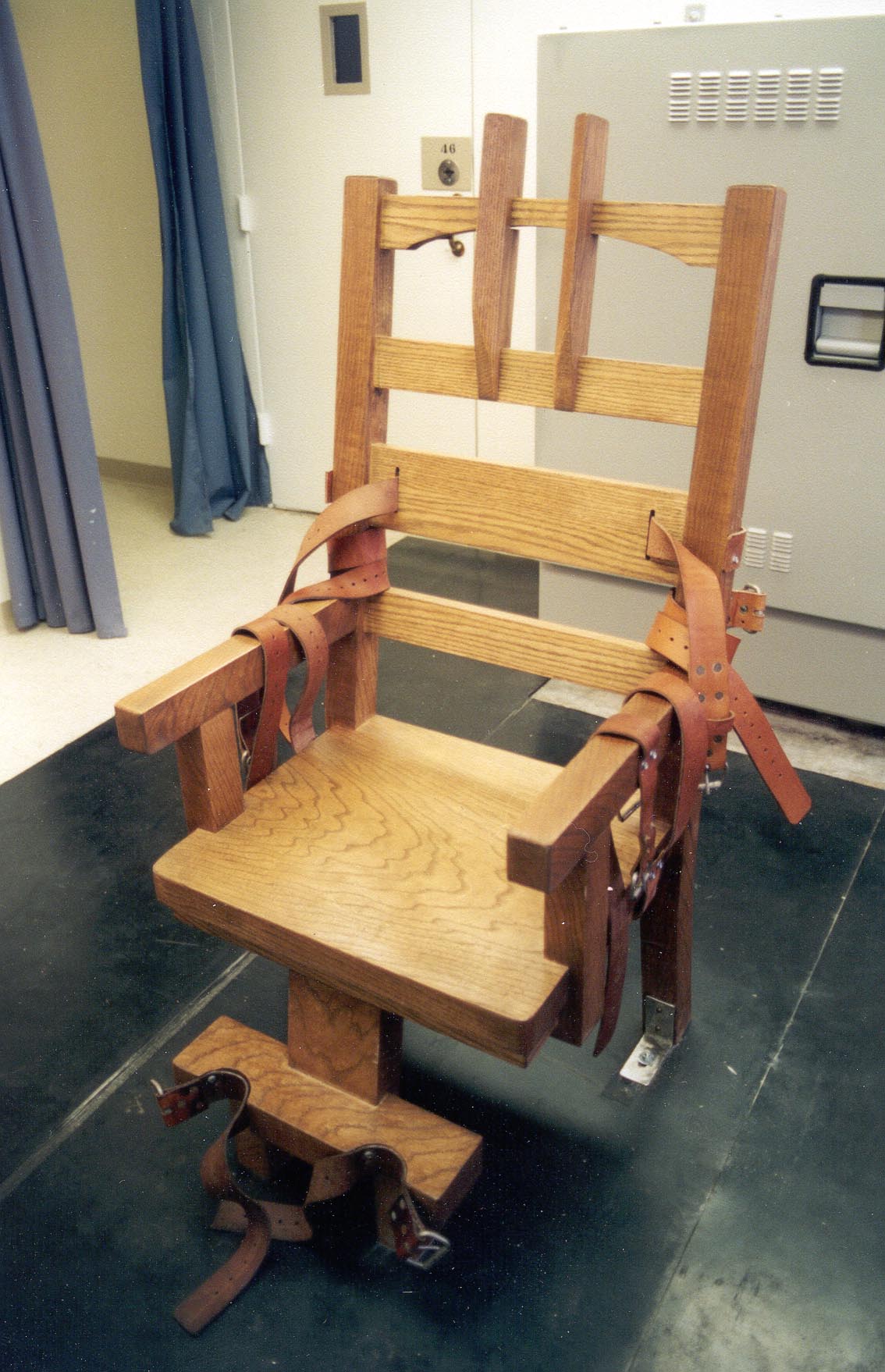PoliticalBooks.org prides itself on providing original and provocative reviews, however, there are times when it’s important to acknowledge that another reviewer nailed it so perfectly that there’s little to add. A high profile release such as Known and Unknown: A Memoir by Donald Rumsfeld will have no shortage of analysis and review, yet none have been as comprehensive, damning, and precise as the following review by Max Boot for tnr.com which can be found here.
The aspect of both Rumsfeld’s memoir and Boot’s review that is worth a deeper look is, to what degree of failure is attributable to the limits of human knowledge? Specifically, was bad intel the primary reason for poor decision making in the Bush administration? Boot harshly writes:
In other words, all this mock-philosophical reflection is really a not-so-subtle plea on behalf of Donald Rumsfeld. I did the best I could based on the information I had; don’t judge me too harshly. Rumsfeld would be more sympathetic if he were to come out and just throw himself on the public’s mercy. But contrition and humility are utterly alien to the cocksure former Navy fighter pilot who is forever poking his finger in someone’s chest, literally or metaphorically. By invoking the limitations of human knowledge, he is merely providing an alibi for his own failures, without quite coming out and saying so.
Obviously Rumsfeld’s arrogance and lack of grace doesn’t win him many sympathizers, yet, it is the folly of hindsight to condemn decisions made without the same perspective. That Rumsfeld uses the limits of knowledge as an alibi, as Boot suggests, to excuse past decisions does not mean that the alibi has no merit. It does not seem disingenuous, even in hindsight, for Rumsfeld to assert that a major concern of the administration and of President Bush was to prevent Saddam Hussein from disseminating WMDs to terrorists, especially when their intelligence backed up that concern. Nearly eight years after the invasion of Iraq it might be a productive exercise to imagine a counterfactual in which the U.S. did not invade Iraq. Regardless of what one concludes from that exercise, it would be unfair to not imagine a possibility of a much more dangerous world without the Iraq War decision. Obviously that doesn’t absolve the administration from the poor execution, diplomacy, public relations, and further poor decisions made with better intelligence.
Ultimately, Rumsfeld won’t be able to escape the fact that even with the best intentions with regards to decision making, the implementation was often severely flawed. Rather than take responsibility and explain what went wrong on his part or his department’s, Rumsfeld often casts blame at the foot of others – most notably the State Department and Condi Rice. This is where the memoir particularly stands out as a clean up job.
Donald Rumsfeld has had a remarkable career, even with his failures in his second reign as Secretary of Defense. The memoir is filled with interesting anecdotes and notable names. It serves as a first hand perspective from one of the most influential figures in U.S. policy in the last 50 years. Despite Rumsfeld’s mendacity, Known and Unknown: A Memoir is still an important volume in the canon of the Bush Presidency and an entertaining flight through U.S. contemporary history.
